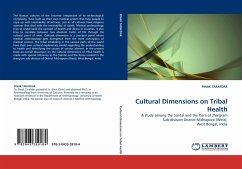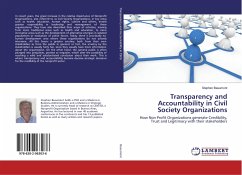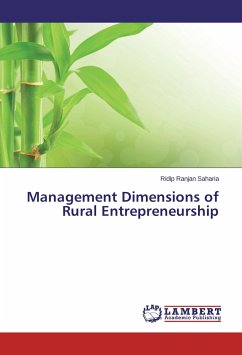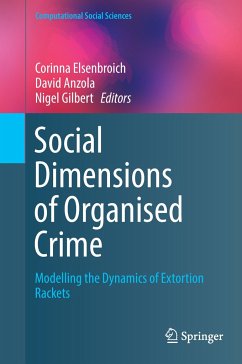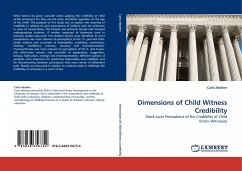
Dimensions of Child Witness Credibility
Mock Juror Perceptions of the Credibility of Child Victim-Witnesses
Versandkostenfrei!
Versandfertig in 6-10 Tagen
52,99 €
inkl. MwSt.

PAYBACK Punkte
26 °P sammeln!
What factors do jurors consider when judging the credibility of child victim-witnesses? Do they use the same standards regardless of the age of the child? The purpose of this study was to explore the meaning of credibility in relation to juror perceptions of children who are witnesses in cases of sexual abuse. The sample was primarily female and included undergraduate students. A written transcript of testimony used in previous studies was used. Two distinct factors were identified. In-court competence was most relevant to perceptions of the 13- year-old child-victim witness and consisted of b...
What factors do jurors consider when judging the credibility of child victim-witnesses? Do they use the same standards regardless of the age of the child? The purpose of this study was to explore the meaning of credibility in relation to juror perceptions of children who are witnesses in cases of sexual abuse. The sample was primarily female and included undergraduate students. A written transcript of testimony used in previous studies was used. Two distinct factors were identified. In-court competence was most relevant to perceptions of the 13- year-old child-victim witness and consisted of believability, credibility, consistency, honesty, confidence, memory, accuracy and misinterpretation. Trustworthiness was most relevant to perceptions of the 5- and 9-year-old child-victim witness and consisted of explanation, suggestion, fantasy, fabrication, revenge and misinterpretation. Different subsets of variables were important for predicting believability and credibility and for discriminating between participants who were certain of defendant guilt. Results are discussed in relation to evidence used to challenge the credibility of witnesses in a court of law.



